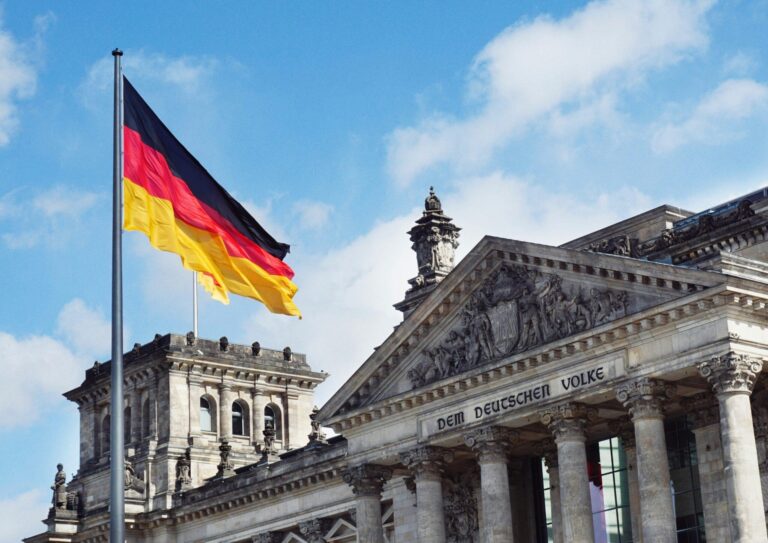As NATO member states face mounting pressure to increase defense budgets amid escalating geopolitical tensions, Germany finds itself at the center of a contentious debate over military spending. The alliance’s proposed 5% of GDP defense spending target marks a significant jump from current levels, prompting questions about whether Europe’s largest economy can meet this ambitious goal without straining its fiscal policies. This article explores the economic implications, political challenges, and strategic considerations surrounding Germany’s capacity to bolster its defense budget in line with NATO expectations.
Germany’s Current Defense Spending and Budgetary Constraints
Germany currently allocates approximately 1.5% of its GDP to defense, a figure that falls significantly short of the NATO target of 2%. However, calls for an ambitious hike to a 5% spending target have stirred debate among policymakers and defense experts alike. With economic pressures mounting, particularly inflationary trends impacting public finance, ramping up military expenditure poses substantial challenges. Analysts emphasize that Germany’s economic framework restricts rapid budget expansions without risking other vital sectors such as healthcare, education, and social welfare.
Budgetary constraints are compounded by Germany’s existing commitments to modernization and procurement programs. According to recent data, a significant portion of the defense budget is already earmarked for upgrading conventional forces and cyber capabilities. The table below illustrates the current allocation of Germany’s defense expenditures:
| Spending Category | Percentage of Total Defense Budget |
|---|---|
| Personnel Costs | 45% |
| Equipment and Procurement | 30% |
| Research and Development | 15% |
| Operations and Maintenance | 10% |
- Economic volatility limits excess expenditures
- Political priorities emphasize balanced spending
- Public opinion remains cautious about militarization
In this context, the feasibility of meeting a 5% NATO defense spending target seems constrained by fiscal realities and competing national interests. Both government officials and defense strategists recognize the need for smarter investments rather than merely increasing volume, focusing on efficiency, innovation, and multilateral cooperation to bridge capability gaps.
Economic Implications of Raising NATO Contributions to Five Percent
Raising NATO defense spending to 5% of GDP represents a significant financial challenge for Germany, especially amid post-pandemic economic recovery and ongoing inflationary pressures. Such an increase would require an additional €70 billion annually, putting strain on public budgets and potentially forcing cuts in other vital sectors like healthcare, education, and infrastructure. Critics argue that this reallocation could slow growth and delay Germany’s green transition efforts. However, proponents emphasize the strategic necessity of aligning with NATO commitments to enhance collective security amid geopolitical tensions.
The fiscal impact can be better understood through a brief overview of current contributions and potential budget reallocations:
| Category | Current % of GDP | Target % of GDP | Approximate € Increase | |||||||||||||||||||||
|---|---|---|---|---|---|---|---|---|---|---|---|---|---|---|---|---|---|---|---|---|---|---|---|---|
| Defense Spending | 1.6% | 5% | €70 Billion | |||||||||||||||||||||
| Healthcare Allocations | 11.2% | Potential Cut | Up to €20 Billion | |||||||||||||||||||||
| Infrastructure Investments |
| Category | Current % of GDP | Target % of GDP | Approximate € Increase / Decrease | ||||||||||||
|---|---|---|---|---|---|---|---|---|---|---|---|---|---|---|---|
| Defense Spending | 1.6% | 5% | +€70 Billion | ||||||||||||
| Healthcare Allocations | 11.2% | Potential Cut | Strategic Recommendations for Balancing National Security and Fiscal Responsibility
Germany stands at a crossroads where enhancing national security cannot come at the expense of economic stability. To reconcile these priorities, policymakers should adopt a phased defense spending increase, allowing the economy to absorb costs without risking fiscal imbalance. A strategic approach could involve targeted investments in cybersecurity, intelligence capabilities, and modernized defense infrastructure, which yield high returns in deterrence relative to cost. Moreover, strengthening partnerships with EU allies to share defense burdens and joint procurement can optimize expenditures while upholding NATO commitments. Beyond budgetary allocations, transparency and public discourse are vital in maintaining democratic accountability over defense spending. Implementing a framework that includes:
can ensure that increases in defense outlays contribute to national security without jeopardizing economic resilience. Below is an illustrative breakdown of Germany’s current defense expenditure versus the proposed 5% NATO spending target:
Closing RemarksAs Germany navigates the evolving geopolitical landscape and increased demands from NATO allies, the debate over committing to a 5% defense spending target remains contentious. Balancing economic constraints with security obligations poses a significant challenge for Berlin, underscoring the complexities inherent in defense policy decisions. How Germany ultimately approaches this target will not only shape its role within the alliance but also signal its broader strategic priorities on the global stage. |




